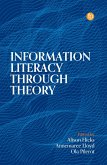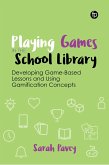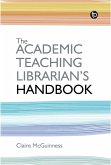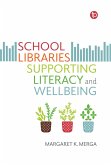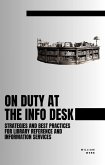The role of the school librarian is varied, extending far beyond resource management and collection curation, to include collaboration and partnerships with internal and external stakeholders for both curriculum support and leisure time. Whether working individually, as part of a library team, or as part of a broader team within the school, local or global community, building and maintaining relationships has become an essential skill.
The Networked Librarian is an invaluable guide to working effectively with the whole school and beyond. Bringing together the author's extensive experience in school libraries and education, it provides a means for school librarians to engage with their communities to create real impact.
Although packed with practical examples and vignettes, the book goes beyond a 'how-to' guide and considers the pedagogical evidence that leads to the success of team membership and leadership. Opening chapters consider what constitutes a team, introducing key elements of the theory of group dynamics, change management and effective communication. Separate chapters then outline how school librarians might engage with different people, both within school and in the wider community, from students and teachers; through support staff from IT departments to caterers; and from governors and parents to public and university librarians. The book also delves into how team working can enhance motivation, the development of self-esteem and how to deal with more challenging situations for amicable resolution. Finally, consideration is given to how networking can be used to promote library resources and services for impact, whether that is within school or in the local or global community. Overall, this book demonstrates the importance of creating networks to underpin practical applications of forming connections, collaborating with colleagues and co-creating and developing ideas to enhance the school library services.
The Networked Librarian is an invaluable guide to working effectively with the whole school and beyond. Bringing together the author's extensive experience in school libraries and education, it provides a means for school librarians to engage with their communities to create real impact.
Although packed with practical examples and vignettes, the book goes beyond a 'how-to' guide and considers the pedagogical evidence that leads to the success of team membership and leadership. Opening chapters consider what constitutes a team, introducing key elements of the theory of group dynamics, change management and effective communication. Separate chapters then outline how school librarians might engage with different people, both within school and in the wider community, from students and teachers; through support staff from IT departments to caterers; and from governors and parents to public and university librarians. The book also delves into how team working can enhance motivation, the development of self-esteem and how to deal with more challenging situations for amicable resolution. Finally, consideration is given to how networking can be used to promote library resources and services for impact, whether that is within school or in the local or global community. Overall, this book demonstrates the importance of creating networks to underpin practical applications of forming connections, collaborating with colleagues and co-creating and developing ideas to enhance the school library services.
Dieser Download kann aus rechtlichen Gründen nur mit Rechnungsadresse in A, D ausgeliefert werden.



